All these Protection Consortia Certify their Food Products according to the specifications filed with the Italian Ministry of Agriculture and the Council of the European Union. These certifications guarantee the consumer the certainty that the product has been made while maintaining its characteristics unchanged regarding: the region of origin, the type of raw material used, the safety of the type of production used. This ensures that the uniqueness of the product is safeguarded, allowing unparalleled flavors and pleasures to be handed down over time
D.O.P. Protected Designation of Origin, is a protection mark that the European Community attributes to those Italian food products whose qualitative characteristics essentially depend on the territory, the geographical environment, and includes both natural and human factors. These agricultural techniques, now rooted in time, absolutely inimitable, outside a specific geographical area and production area. Who makes D.O.P. must strictly comply with the production specification guaranteed by an independent control body
I.G.P. Protected Geographical Indication, is a mark of origin that the European Community attributes to Italian food products for which the quality, characteristics, reputation depend on a specific geographical origin. The production, the transformation, the elaboration, must take place in the rigor of the production rules, established in the production disciplinary, and the respect of these rules is guaranteed by an independent control body
I.G.T. Typical Geographical Indication, is reserved for wines whose production takes place in the respective geographical indication provided for by the specification, the grapes from which it is obtained come for at least 85% exclusively from that geographical area, with the relative organoleptic characteristics indicated . The I.G.T. it is important as it is the first step of the classification, this category includes wines produced in certain regions or geographical areas, authorized by law, according to a production specification, they can report on the label, in addition to the indication of the color, also the indication of the grape variety used and the year of harvesting of the grapes. The mention I.G.T. may be replaced by the mention Vin de Pays for wines produced in Valle d'Aosta, and by the mention Landwein for wines produced in South Tyrol in the autonomous province of Bolzano
D.O.C. Denomination of Controlled Origin, is a denomination used for Italian wines that certifies the production area of the grapes and is used to designate a renowned and quality wine. Its characteristics must comply with a very specific production specification, must be subjected during the production phase to a preliminary chemical-physical analysis and an organoleptic examination that certifies compliance with the requirements
D.O.C.G. Denomination of Controlled and Guaranteed Origin, is a trademark that indicates the geographical area of origin and the historical name of high quality and important Italian wines, due to the effect of traditional natural and human factors. In compliance with the production disciplinary, even before bottling, each batch must be checked to verify its organoleptic, chemical and physical characteristics. Furthermore, the legislation provides that D.O.C.G. optionally have a further segmentation at the top, in sub-zones, or the additional geographical mention, which must be considered as a classification in itself, or the highest quality level
Sustainable Farming, at the heart of the concept is the goal of meeting the needs of humanity, without this activity being destined to penalize the needs of future generations. The definition is given by the Agricultural Sustainability Institute, an organization headed by the United Nations. Here are the five principles of sustainable agriculture to be inspired by. The first is the goal of increasing productivity, employment and added value in food systems, through a change in agricultural practices and processes aimed at ensuring food supplies and reducing water and energy consumption. The second principle aims at the protection and improvement of natural resources: this includes the conservation of the environment, the containment of pollution of water sources, the fight against the destruction of habitats and ecosystems, the deterioration of the land. The third principle concerns the improvement of livelihoods by promoting inclusive economic growth. The fourth focuses on increasing resilience, whether it is for people, communities and ecosystems. This implies the transformation of production models to ensure that the impact that could derive from extreme events due to climate change or the variability of market prices can be minimized. The fifth and final point is the challenge of adapting the governance of the sector to the new challenges, thanks to a series of rules that make it possible to balance public and private, ensuring transparency and fairness
Organic Farming, produces food by exploiting the natural fertility of the soil, limiting itself to small interventions, maintaining both plant and animal biodiversity. Products grown and harvested in their right season, without forcing growth in any way, without using chemicals such as pesticides and herbicides or Genetically Modified Organisms. Biological derives from the Greek Bios which means life, the reasons for taking BIO products are many, the most important are the protection of the Earth and the protection of our organism
Slow Food Presidia, this project was born in 1999 for the recovery and protection of small productions of gastronomic excellence threatened by industrial agriculture, environmental degradation, homologation. They are communities that work every day to save native breeds, varieties of vegetables and fruit, breads, cheeses, cured meats, traditional sweets, and more from extinction. Committing to pass on production techniques and crafts. They take care of the environment. They enhance landscapes, territories, cultures. About 600 Presidia involve farmers, artisans, shepherds, fishermen and winemakers from 70 countries
-
Products
Bolognami Norcia Reserve Pork Barbozzo, produced with a minimum maturation of one month, externally flavored with salt, pepper and natural flavors. Ar..40.00 € 36.00 € Ex Tax: 32.73 €Brunello di Montalcino Riserva Tenuta di Collosorbo, is produced only in the best vintages from a meticulous selection of Sangiovese grapes from the o..95.00 € 90.25 € Ex Tax: 73.98 €Brunello di Montalcino Vigna Marrucheto Banfi, we are talking about a true Cru dedicated exclusively to Sangiovese, which was planted by the company i..60.00 € 54.00 € Ex Tax: 44.26 €Chianti Colli Senesi Poggio Stella, is produced with 100% Sangiovese grapes, harvested when fully ripe in the vineyards that climb the hills of the pr..11.00 € 9.90 € Ex Tax: 8.11 €Chianti Riserva Vecchia Cantina, is produced with Sangiovese grapes, the vineyards are at approx. 250/450 m above sea level with a guyot or spurred co..10.88 € 8.92 € Ex Tax: 7.31 €Cinta Senese D.O.P. Pork Cheek Bolognami, produced with a minimum maturation of one month, externally flavored with salt, pepper, garlic. Artisan prod..54.00 € 47.52 € Ex Tax: 43.20 €Cured Raw Ham of Cinta Senese D.O.P. Bolognami, produced with a minimum maturation of eighteen months, it is massaged with a mixture of pepper, vinega..808.00 € 727.20 € Ex Tax: 661.09 €Le Volte dell'Ornellaia, comes to light in the evocative landscape of Bolgheri, in one of the most vocated areas of Tuscany. It combines a Mediterrane..25.00 € 23.75 € Ex Tax: 19.47 €Lucente Tenuta Luce, is the result of a selection of grapes from the best vineyards on the estate owned by the Frescobaldi family in Montalcino. This ..26.50 € 25.17 € Ex Tax: 20.64 €Lungocosta Bolgheri Bianco di Caccia al Piano, is a wine produced in limited quantities. A wine that expresses immediate pleasantness without sacrific..24.00 € 21.60 € Ex Tax: 17.70 €Maggiarino Nobile di Montepulciano of Tenuta La Braccesca, comes from the vineyards of the estate of the same name, one of the winery's most vocated a..60.00 € 54.00 € Ex Tax: 44.26 €Merlot Poggio Stella, is produced with 100% Merlot grapes, harvested when fully ripe on the vineyards along the hills of the province of Cortona and A..11.00 € 9.35 € Ex Tax: 7.66 €Mormoreto Castello di Nipozzano Frescobaldi, is produced from a single vineyard of the same name located at an altitude of 300 metres above sea level,..62.00 € 58.90 € Ex Tax: 48.28 €Pinot Nero Castello della Sala Antinori, has been produced since 1990 from Pinot Nero grapes is, in a sense, the "alter ego" of Cervaro della Sala, to..49.00 € 46.55 € Ex Tax: 38.16 €Poggio alle Gazze dell'Ornellaia, owes its elegant Mediterranean style to the unique microclimate of the estate. This authentic gift of nature enables..60.00 € 51.00 € Ex Tax: 41.80 €Poggio alle Nane Fattoria Le Mortelle, comes from the heart of the Tuscan Maremma, a few kilometres from Castiglione della Pescaia, in an extraordinar..60.00 € 57.00 € Ex Tax: 46.72 €Nino Franco's Prosecco Superiore Dry Primo Franco was born in vineyards in the heart of the Valdobbiadene area. One of the first wines signed by the p..16.00 € 15.20 € Ex Tax: 12.46 €Rosso di Montepulciano Vecchia Cantina, is produced with Sangiovese grapes, the vineyards are at approx. 250/450 m above sea level with guyot and spur..8.70 € 7.39 € Ex Tax: 6.06 €Sabazio Rosso di Montepulciano Tenuta La Braccesca, was inspired by Sabatino Lulli, known as 'Sabazio', a monk of the Montepulciano Abbey who was the ..10.40 € 9.88 € Ex Tax: 8.10 €Sangiovese Rosato Vecchia Cantina, is produced with Sangiovese grapes, the vineyards are at approx. 250/300 m a.s.l. with guyot or spurred cordon trai..7.25 € 5.07 € Ex Tax: 4.16 €Santa Pia Nobile di Montepulciano Riserva Tenuta La Braccesca, originates from the vineyards located in the locality of the same name on the crags bel..39.00 € 37.05 € Ex Tax: 30.37 €Tenuta Guado al Tasso's Scalabrone by Antinori is produced in the small and prestigious DOC area of Bolgheri, on the coast of the Alta Maremma, about ..16.00 € 15.20 € Ex Tax: 12.46 €Syrah Poggio Stella, is produced with 100% Syrah grapes, harvested when fully ripe in the vineyards along the hills of the province of Cortona with a ..12.00 € 10.20 € Ex Tax: 8.36 €Syrah Poggio Stella, is produced with 100% Syrah grapes, harvested when fully ripe in the vineyards along the hills of the province of Cortona with a ..11.00 € 9.35 € Ex Tax: 7.66 €Troncone from the Winery Le Ragnaie in Montalcino, produce this wine from grapes grown according to organic methods. The particularity of this winery ..18.00 € 15.30 € Ex Tax: 12.54 €Tuscan Brado Pork Guanciale Bolognami, produced with a minimum maturation of one month, externally flavored with salt, pepper, garlic. Artisan product..34.00 € 30.60 € Ex Tax: 27.82 €Valdichiana Bianco Vergine Vecchia Cantina, is mainly produced with Trebbiano, Malvasia and Grechetto grapes, the vineyards are at approx. 250/300 m a..7.25 € 5.07 € Ex Tax: 4.16 €Extra Virgin Olive Oil Ninfa D.O.P. Umbria Colli del Trasimeno Bolognami, pack of 6 bottles 500 ml, obtained from all the typical cultivars of the ter..114.00 € 102.60 € Ex Tax: 98.65 €
-
Wines
Achelo Tenuta La Braccesca, is produced from Syrah grapes only, which find in the clay loam soil of Cortona a perfect climate for cultivation, tending..14.00 € Ex Tax: 11.48 €Adele Prosecco Valdobbiadene Superiore Baldi, is an organic wine that comes from vineyards located in the hills of Conegliano, in the province of Trev..14.80 € Ex Tax: 12.13 €Adèo Bolgheri Rosso di Campo alla Sughera, is a classic Bordeaux blend produced in the splendid inland area of the Tuscan coast. It is made from a ble..23.00 € Ex Tax: 18.85 €Arnione Bolgheri Superiore di Campo alla Sughera, is produced in the splendid inland area of the Tuscan coast. A wine with an unmistakable identity, e..47.00 € Ex Tax: 38.52 €Aska Bolgheri Rosso Banfi, was born in vineyards located between the beaches of the northern Maremma and the hills surrounding Castello Carducci. For ..19.00 € Ex Tax: 15.57 €Bardolino Chiaretto Bigagnoli, organic product, is a young, fragrant and light wine that originates on the Veronese shore of Lake Garda. It is produce..13.00 € Ex Tax: 10.66 €Bardolino Classico Bigagnoli, organic product, is a young, fragrant and light wine that originates on the Veronese shore of Lake Garda. It is produced..13.00 € Ex Tax: 10.66 €Benefizio Riserva Pomino Bianco Frescobaldi, crowns the story of an international white grape variety grown in this unique corner of Tuscany, the Cast..30.00 € Ex Tax: 24.59 €Benefizio Riserva Pomino Bianco Frescobaldi, crowns the story of an international white grape variety grown in this unique corner of Tuscany, the Cast..29.00 € Ex Tax: 23.77 €Blanchus Brut Terre de la Custodia, is a Long Charmat Method produced with Grechetto grapes, which are cultivated at an altitude of approx. 350 metres..9.60 € Ex Tax: 7.87 €
-
Brands
-
Quality Brands
-
Protection Consortia
-
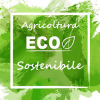 Sustainable Agriculture
Sustainable Agriculture
-
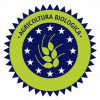 Organic Farming
Organic Farming
-
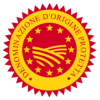 D.O.P. Protected Designation of Origin
D.O.P. Protected Designation of Origin
-
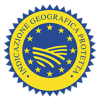 I.G.P. Protected Geographical Indication
I.G.P. Protected Geographical Indication
-
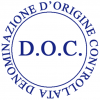 D.O.C. Denomination of Controlled Origin
D.O.C. Denomination of Controlled Origin
-
 D.O.C.G. Denomination of Controlled and Guaranteed Origin
D.O.C.G. Denomination of Controlled and Guaranteed Origin
-
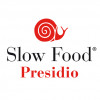 Slow Food Presidia
Slow Food Presidia
-
 Gluten Free
Gluten Free
-
 Biological Products
Biological Products
-
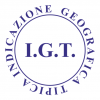 I.G.T. Indicazione Gerografica Tipica
I.G.T. Indicazione Gerografica Tipica
-
-
Quality Brands
- News















































































